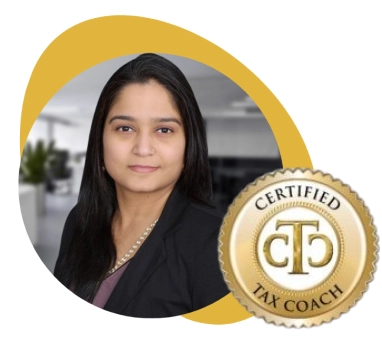
Starting a new business is exhilarating. After all, it is filled with promise and potential. However, navigating the financial management and taxation complexities is a challenge in itself, especially for budding entrepreneurs. In the competitive landscape of startups, having the right tax advisory on your side can make all the difference in achieving your financial objectives. In this blog post, we’ll share the best tips to find the ideal tax advisor for your startup’s financial goals.
1. Define Your Tax Needs and Goals
Before embarking on your search for a tax advisor, defining your startup’s tax needs and goals is crucial. Whether you’re seeking assistance with tax planning, compliance, or optimization strategies, articulating your objectives will guide you in finding an advisor with the right expertise, skill set, knowledge, and experience to meet your specific requirements.
2. Look for Specialization in Startup Taxation
Startups have distinct tax considerations compared to established businesses. Look for tax advisors who specialize in working with startups and entrepreneurs. These professionals are well-versed in the unique tax challenges & opportunities faced by different types of companies. Hence, they can provide tailored assistance to help you navigate tax implications effectively.
3. Evaluate Credentials and Experience
When selecting a tax advisor for your startup, it’s essential to assess their credentials and experience in taxation. Look for advisors with relevant certifications (such as CPA or EA) and extensive experience working with startups in your industry.
A seasoned tax advisor with a proven track record can offer valuable insights and strategic advice to optimize your tax position and maximize savings.
4. Assess Communication and Accessibility
Effective communication is critical to a successful advisor-client relationship. Seek out tax advisors who demonstrate clear and timely communication and who are accessible when you need them.
Whether it’s answering questions, providing updates on tax laws, or offering guidance during tax season, choose an advisor who prioritizes responsive and transparent communication.
5. Seek Referrals and Recommendations
Tap into your network of fellow entrepreneurs, industry peers, and professional associations for referrals to reputable tax advisors.
Personal recommendations from trusted sources can offer valuable insights into an advisor’s reputation, reliability, and ability to deliver results. Feel free to ask for referrals and conduct thorough due diligence before deciding.
6. Consider Technology and Innovation
Technology plays a significant role in tax preparation and planning in today’s digital age. Look for tax advisors who leverage innovative tools and software to streamline processes, enhance accuracy, and improve efficiency. Whether it’s cloud-based tax software, data analytics, or automation solutions, choose an advisor who embraces technology to deliver superior service.
7. Evaluate Cost and Value
While cost is an important consideration, it’s equally essential to evaluate the value a tax advisor provides. Consider factors such as the breadth of services offered, the quality of advice provided, and the potential tax savings generated. Investing in a skilled and knowledgeable tax advisor can yield substantial long-term benefits for your startup’s financial health and growth.
Wrapping Up
In a nutshell, finding the right tax advisor for your startup’s financial goals is a critical step in ensuring compliance, minimizing tax liabilities, and optimizing financial performance. This is where we come into the picture. Specialists in tax advisory services, we can help you optimize your startup’s tax planning services. We are experienced, certified, and knowledgeable. Schedule your consultation now.





